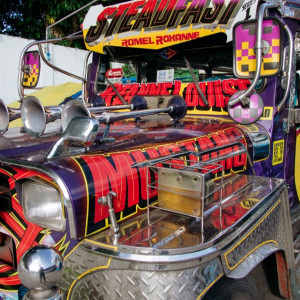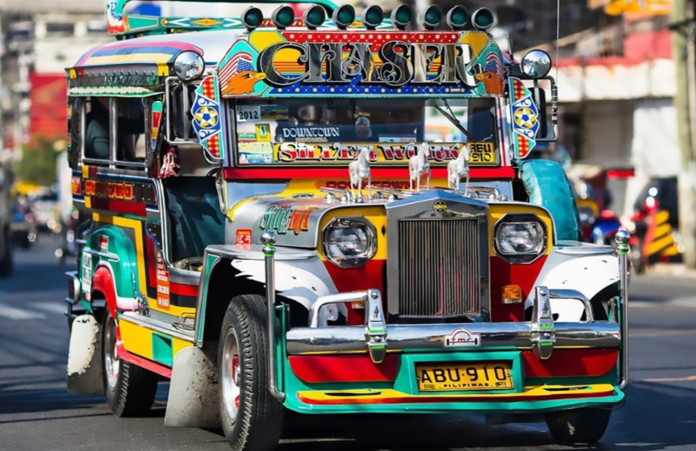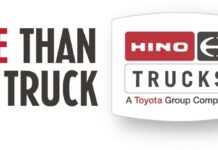When I was stationed in Korea, I went to the Philippines to evaluate a military exercise. I saw something I’d never seen, and they were way over the top – the taxi drivers there drive “Jeepneys” – generally a Jeep chassis and drivetrain, open-body styling, and decorated with more lights, horns, and graphics than most people could imagine. They look absolutely ridiculous, but surely get attention, and when you’re a taxi driver competing for fares with lots of tourists and military people to move around, your Jeepney needs to stand out from the crowd. Now, you may ask, what in the world does a taxi in the Philippines have to do with tow trucks in the United States?
It’s very simple – we’ve reached a point where we spend thousands of dollars on vehicle wraps or custom paint, gnarly decals, enough disco lights to fill up a dance club, and all the latest and greatest electronic and mechanical doo-dads (toys)…but I’ve witnessed something in the past few years that shows we’re spending our money incorrectly – our egos are getting the best of us – and we forget that training and good experience is far more important that having the flashiest truck on the road. All that bling doesn’t do a bit of good if you wreck or flip your truck…more on that in a moment.
In my home state of Texas in recent years, I know of more than ten heavy wreckers that have been flipped while doing recoveries. Most were totaled, a couple were saved, but still sustained major damage and were out of commission for months while repairs were made. Given that most towing companies only have one or two heavies, think of the huge hit they take on their bottom line while that truck is down.
 About ten years ago, I was on scene in Oklahoma City where a tow op pulled a loaded trash truck out of a concrete ditch and had the front wheels of his wrecker six to eight feet in the air – I approached the guy and asked about the strain and stress on the winches and lines, as well as the winch mounts, frame rails, and mounting hardware – he said he’s always done it like that. I asked about using snatch blocks or dead man rigging to take a large part of the load off the truck…he told me he didn’t believe in either one. The guy bragged about his $400 boots and $200 sunglasses. That $600 could have been more wisely spend by attending a training class so he could understand physics.
About ten years ago, I was on scene in Oklahoma City where a tow op pulled a loaded trash truck out of a concrete ditch and had the front wheels of his wrecker six to eight feet in the air – I approached the guy and asked about the strain and stress on the winches and lines, as well as the winch mounts, frame rails, and mounting hardware – he said he’s always done it like that. I asked about using snatch blocks or dead man rigging to take a large part of the load off the truck…he told me he didn’t believe in either one. The guy bragged about his $400 boots and $200 sunglasses. That $600 could have been more wisely spend by attending a training class so he could understand physics.
Also, in Oklahoma and dealing with the same company, I witnessed a guy off-loading a huge forklift from a stepdeck flatbed trailer to the ground, using a Landoll trailer. The operator never once asked about the weight of the forklift before backing his Landoll and tractor up against the rear of the stepdeck. Turns out the forklift weighed over 46,000 pounds and was used inside a beer bottling/canning facility. The operator ran the tandems on the Landoll forward to raise the bed slightly, making it even with the stepdeck. The truck driver (stepdeck) got in the forklift, started it up, and rolled it onto the rear of the Landoll. As soon as both axles of the forklift were on the Landoll, the front of the Landoll shot up, lifting the drive wheels of the tow company’s tractor about four feet off the ground…and the whole assembly started rolling away from the stepdeck and towards the parking lot. The tow operator freaked out, didn’t know what to do to stop the situation, and the truck driver (in the forklift cab) was reasonably worried as well. I ran over and started moving the Landoll’s tandems and the tractor’s drive tires came down and stopped the runaway. I knew this was hard on the hydraulics on the Landoll, but we couldn’t have the whole assembly rolling out into the street. The tow operator asked me not to tell the company owner when we got back to the yard. I’d been interviewing for a safety position there and decided not to take it.
Wheels in the air, improper rigging – these are things our predecessors used to do commonly and would produce disastrous results at times – or at the very least, extreme abuse to our equipment. Many of us, over the years, learned from mistakes like that and learned how to do it better.
Many people in our industry absolutely love to talk about other people, especially when a mistake is made. Ironically, the person running their mouth usually has less training and experience than the person making the mistake. Add in lots of ego, and stir in a dose of social media, and we have a perfect storm. In our social media environment, when someone makes a major mistake, thousands of tow operators, shop owners, vendors, insurance reps, and other business owners will see it live on video within a day or two. Radical events spread outside our industry and have garnered several million hits on either YouTube or TikTok.
Ego is a funny element. It both entices us to do stupid things, and it encourages us to make fun of others. Significantly bad blend of chemicals there…
Here’s what I know – there are two ways to develop confidence: one is through training and experience; the other is through arrogance and assumption.
Guess which path is dangerous and costly? Think about that for a second as I tell you about something I witnessed last month in a fast food place inside a truck stop. I was done with my day and was going to eat and then shower, and when I walked into the restaurant, I saw that the ice dispenser on the soda fountain was blowing out ice cubes like a slot machine throws out coins. A young girl was rotating five-gallon buckets, trying to catch the volume of wayward ice, and then dumping each bucket outside as the other filled up. Ice flowed over the soda fountain’s drain and into a big pile on the floor.
The restaurant manager was literally yelling and freaking out, hands in the air, screaming, “Oh Lord, help us!” I smirked, since it was only ice cubes, not fire. No one was going to die. And this truck stop had two more soda fountains. This simply wasn’t a catastrophe. Still, the manager ran around with her hair on fire (proverbially) while several other employees live-streamed the event like it was some celebrity in concert.
The foundation of the problem is that not a single person working in the restaurant, including the manager, knew how to shut off the ice dispenser. Not a soul. No idea at all. The truck stop manager came over quickly and started removing panels and figured out how to shut it off – within about a minute. He had no training, but he took action, and fixed the problem, at least temporarily.
The concept is simple – in an emergency or other difficult situation, you will respond how you have been trained and have practiced. If you have not been trained and have not practiced, you will do nothing. Or you will take incorrect actions that will make the situation even worse.
We have $300,000 50-tons, $600,000-$1,000,000 rotators, and even $125,000 flatbeds and light duty trucks – instead of initially committing to $10,000 for a vehicle wrap and another $5,000 in chrome, why not invest in training? You can put a driver through the entire program (in steps) for three major training companies that I know of…for under $4,000. Instead, our ego gets the best of us. We spend all that money on the truck and won’t spend a dime on training…or won’t buy a $200 wheel basket securement system or $400 for a real set of tow lights. We’d rather show off, and just run the disco beacons and the flashers on the towed vehicle because our ego ran us out of money.
The only problem I see with formal training is also related to ego. Your ego may get the best of you. Your ego will tell you that you already know everything you need to know.
That is likely what those people who flipped over hundreds of thousands of dollars’ worth of tow trucks thought, as well.
One more thing – here’s something that’s FREE. Inspect all of your cables, chains, bridles, and endless loops. Replace as needed. Don’t try to cut corners. Equipment failure is the other issue that causes trucks to flip.
Factor this in – if you or your people flip a truck, damage a vehicle being recovered, or cause some other major embarrassment to your company, the embarrassment isn’t what you should be worrying about. It’s the distinct possibility of a fatality, major injuries, and the strong guarantee of ruining the reputation you’ve worked so hard to build.








